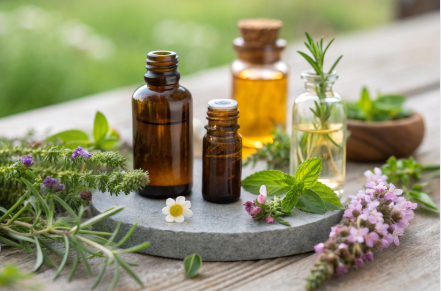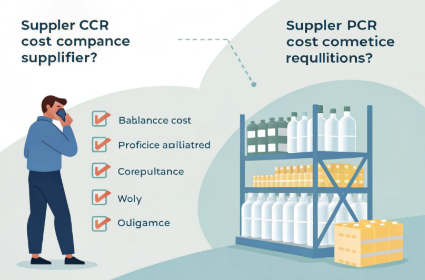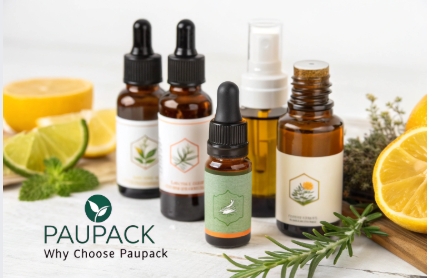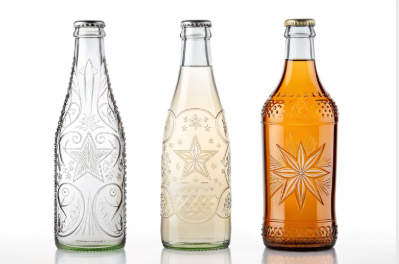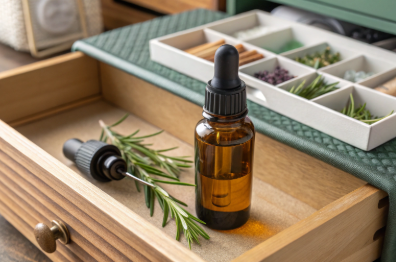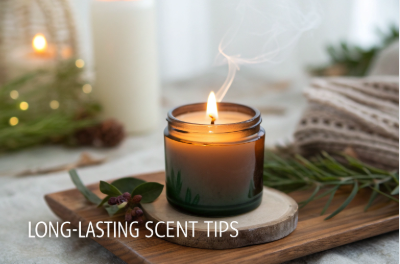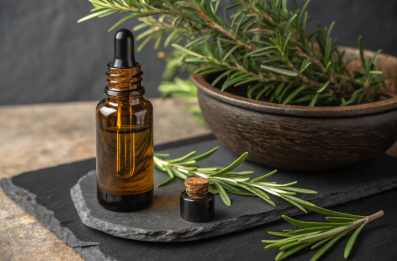Choosing the right PCR bottle supplier can feel like walking a tightrope between cost savings and compliance risks.
The best way to choose a PCR bottle manufacturer is by weighing the long-term value of certifications against short-term cost savings. Prioritize compliance for regulated industries, and negotiate costs with certified, experienced suppliers.
Many beauty and wellness brands face this dilemma: do we go for the cheapest quote or the most certified partner? Let’s break this question down and guide you toward a smarter sourcing decision.
Why Are Certifications Essential in Choosing a PCR Bottle Manufacturer?
For brands selling in regulated markets, unverified packaging can lead to fines, recalls, or worse—customer distrust.
Certifications ensure that your PCR bottle supplier complies with quality, safety, and sustainability standards, which is critical for product integrity and regulatory compliance.
Understanding the Value of Certifications
Let’s be clear: certifications are more than fancy logos. Here’s what major ones actually mean:
| Certification | What It Ensures | Why It Matters |
|---|---|---|
| ISO 9001 | Quality management systems | Minimizes product defects |
| FDA Registration | Compliance with U.S. safety standards | Required for cosmetics, pharma |
| BPOM (Indonesia) | Regulatory approval for health products | Important for Southeast Asian markets |
| EN Standards (Europe) | Conformity to EU packaging norms | Required for entering EU |
These certifications protect your business from hidden liabilities. For example, a dropper bottle made from uncertified recycled plastic may leach toxins when filled with essential oil. The cost of a product recall could far outweigh the savings on a cheaper bottle.
At PauPack, we hold ISO, FDA, BPOM, and EN certifications across our production lines. We’ve helped over 200 clients avoid costly compliance issues, especially Amazon and EU beauty sellers.
How Do Certification Levels Impact Product Quality and Compliance?
It’s tempting to assume “a bottle is just a bottle”—until it leaks, cracks, or discolors your serum.
Certified manufacturers are required to use tested materials, undergo quality audits, and follow strict production protocols that significantly reduce defects and non-compliance risks.
Dive Deeper: Real-World Impact of Certification
Let’s compare two scenarios:
| Factor | Certified Manufacturer | Non-Certified Manufacturer |
|---|---|---|
| Material Traceability | Documented, tested PCR sources | Unknown origin, possible contamination |
| Quality Consistency | Controlled via SOPs and audits | Depends on operator skill |
| Surface Finish | Uniform, compliant with decoration specs | Risk of print misalignment or fading |
| Regulatory Risk | Low | High (non-compliant shipments may be seized) |
| Branding | Aligns with sustainability values | May hurt brand image |
PauPack’s factory uses 100% recyclable materials and an 80% closed-loop water system during production. That’s not just eco-friendly; it also aligns with global compliance trends for sustainable packaging.
What Are the Hidden Costs Behind Low-Priced PCR Bottle Offers?
At first glance, a quote that’s 20% cheaper looks like a great deal. But look again.
Cheap PCR bottles often come with hidden costs—like high defect rates, poor aesthetics, longer lead times, and non-compliance penalties—that inflate your true cost per unit.
Hidden Costs Breakdown
| Hidden Cost | How It Happens | Impact |
|---|---|---|
| High Defect Rate | Poor QC, unvetted raw materials | Higher rejection and returns |
| Shipping Damage | Flimsy packaging | Broken goods, lost margin |
| Label Misalignment | Inconsistent printing process | Poor shelf appeal, rework costs |
| Delayed Lead Time | Unreliable supply chain | Missed launch windows |
| Non-Compliance | Lack of certifications | Import rejections, legal risk |
For instance, one of our skincare clients switched from a low-cost supplier due to a 13% bottle defect rate in their first shipment—causing launch delays and $9,000 in replacement costs.
With PauPack, clients benefit from a 0.3% defect rate average and localized warehousing across six countries for JIT delivery. We help you save where it counts: on reduced waste and increased efficiency.
Can You Balance Certification Standards with Competitive Pricing?
Yes—but only if you approach it strategically and partner with the right supplier.
The key is to choose manufacturers with scale, automation, and in-house capabilities, which allows them to offer certified products at a competitive price point.
How to Achieve the Balance
-
Ask for Multi-Tier Quotes: Request quotes for different MOQs and finish levels. Volume often unlocks savings.
-
Evaluate Cost-Per-Use: Consider defect rate and brand risk in your unit cost equation.
-
Check for In-House Production: Avoid middlemen. Suppliers like PauPack with over 20 automated lines deliver better margins.
-
Bundle Services: Look for OEM/ODM packaging suppliers who also offer logo printing, design support, and shipping. It reduces handover loss and time.
-
Negotiate Smartly: Leverage long-term potential and case studies to get better deals without compromising quality.
PauPack offers custom PCR bottle manufacturing with full OEM/ODM support and small-batch options starting at just 1,000 pcs. This flexibility helps growing brands scale sustainably.
How PauPack Helps Brands Avoid the Certs-vs-Cost Dilemma?
Many suppliers force you to choose between quality and cost—but we built our business so you don’t have to.
PauPack combines full certification compliance, low MOQs, and one-stop design-to-delivery support to help your brand scale with confidence.
Why Our Clients Trust Us
-
✅ ISO/FDA/BPOM/EN-certified manufacturing
-
✅ PCR bottles made with traceable, tested materials
-
✅ MOQ starting at 1,000pcs with custom printing
-
✅ 30,000+ successful packaging projects
-
✅ Global warehousing & localized after-sales support
Whether you're an Amazon beauty seller or a skincare startup founder, we make the complex world of packaging feel simple—and scalable.
Do Green Certifications Actually Matter to Your End Customer?
In a price-sensitive market, it’s tempting to assume customers don’t care about supply chain ethics. But today’s buyer is watching.
Yes, green certifications matter more than ever—especially to eco-conscious shoppers who reward transparent, sustainable brands with loyalty.
Dive Deeper: Sustainability as a Differentiator
Consumer studies show over 60% of Gen Z and Millennial buyers prefer eco-friendly packaging. That’s not a niche—it’s your next loyal segment.
| Certification | Consumer Impact |
|---|---|
| FDA & ISO | Reassures safety and reliability |
| Recyclability Symbol | Visual cue for eco-responsibility |
| EN Standards | Appeals to EU eco-policy supporters |
| PCR Content Label | Connects brand to circular economy goals |
At PauPack, we use bio-based PLA and plant-derived PCR materials, backed by global certifications. Our labels make it easy for your marketing team to communicate sustainability—from unboxing to Instagram stories.
How Can a Certified Supplier Enhance Your Brand Image?
Think of your supplier as your silent co-brand. Their ethics, capabilities, and consistency become part of your customer experience.
Certified suppliers deliver not just compliance, but brand credibility—positioning your product as safe, ethical, and premium.
Strategic Advantages of Working with a Certified Partner
-
Co-Marketing Opportunities
Work with a supplier who supports you with product certifications, material origin documents, and sustainable messaging. -
Risk Reduction = Brand Protection
Certified suppliers adhere to cleanroom standards, RoHS compliance, and global audit trails—protecting your brand from future crises. -
Premium Shelf Appeal
Flawless finish, accurate color matching, and durable materials—all standard from certified factories—enhance product perception.
PauPack works with L’Oréal, Shell, and other global brands. If your boutique skincare brand wants to scale with that level of polish, we’re here to help—from technical files to storytelling support.
What Are the Total Lifecycle Costs of a Non-Certified PCR Bottle?
You may save a few cents upfront, but non-certified suppliers can cost you more down the road—through returns, downtime, or lost trust.
The lifecycle cost includes not just production, but logistics, returns, quality issues, and missed opportunities.
Lifecycle Cost Model
| Phase | Cost Risk Without Certification |
|---|---|
| Design | Misalignment, poor compatibility |
| Manufacturing | Inconsistent dimensions, leaks |
| Labeling | Print fade, regulatory failure |
| Shipping | Breakage, customs delays |
| Customer Use | Leaks, complaints, returns |
One of our clients saw a 40% drop in return rate after switching to PauPack PCR bottles—with better batch consistency and fewer complaints. That’s brand equity you can’t buy with discounts.
Is It Possible to Audit Cost Without Sacrificing Quality?
Absolutely—if you focus on total value, not just unit cost.
You can still maintain budget control by auditing your full procurement process: from MOQ to packaging design, warehousing, and logistics.
Tips to Smart Cost Auditing
-
Ask for Transparent BOMs
Break down cost by material, finish, and process to spot real savings. -
Factor in Warehousing & Delivery
Local stock options and JIT shipping (like we offer) reduce warehousing cost. -
Evaluate Sampling Speed & Accuracy
A supplier who delivers accurate prototypes reduces time-to-market delays. -
Bundle Services
Use OEM/ODM packages to reduce vendor coordination fees.
At PauPack, we combine PCR bottle production, decoration, packing, and global delivery—all under one roof. That means fewer touchpoints, faster decisions, and better margins.
Why PauPack’s PCR Bottles Make Sense for Smart Beauty Brands?
You don’t need to gamble between price and quality—we’ve optimized both.
PauPack offers fully certified PCR bottle solutions at flexible MOQs, helping you launch sustainably, scale smartly, and stand out.
Why Choose PauPack?
-
ISO, FDA, BPOM, and EN certified for full global compliance
-
100% recyclable and plant-based PCR materials
-
20+ automated lines = efficient, scalable, cost-controlled production
-
30+ designers = on-brand, aesthetic, print-ready customizations
-
Warehouses in 6 countries = JIT delivery, reduced holding cost
From 1,000-pc MOQ to full-brand rollout, we’re here to help beauty and wellness brands like yours grow without compromise.
Conclusion
Choosing certified PCR bottle manufacturers isn’t just about compliance—it’s a smart investment in your brand’s future. PauPack helps you align sustainability, aesthetics, and cost.




